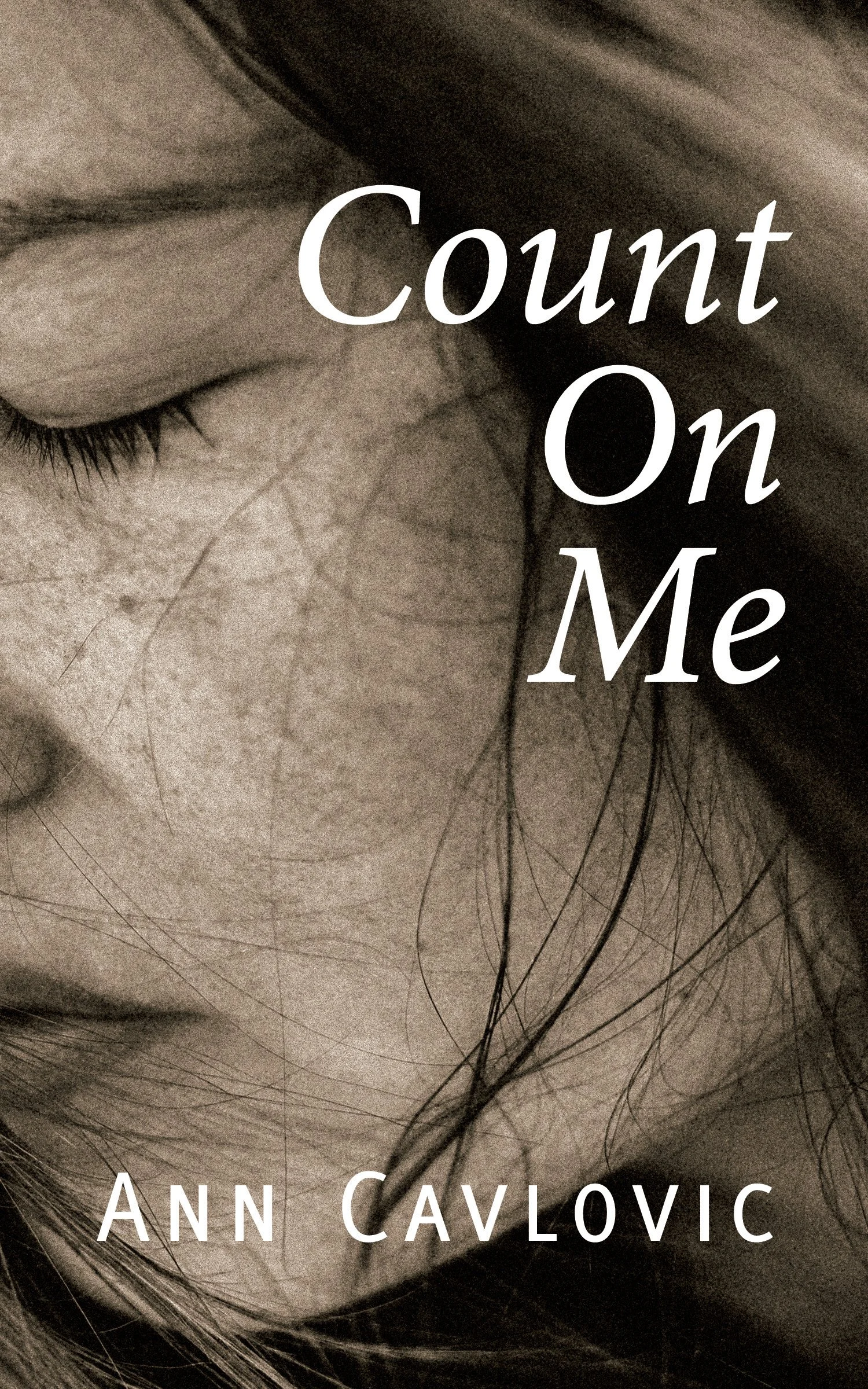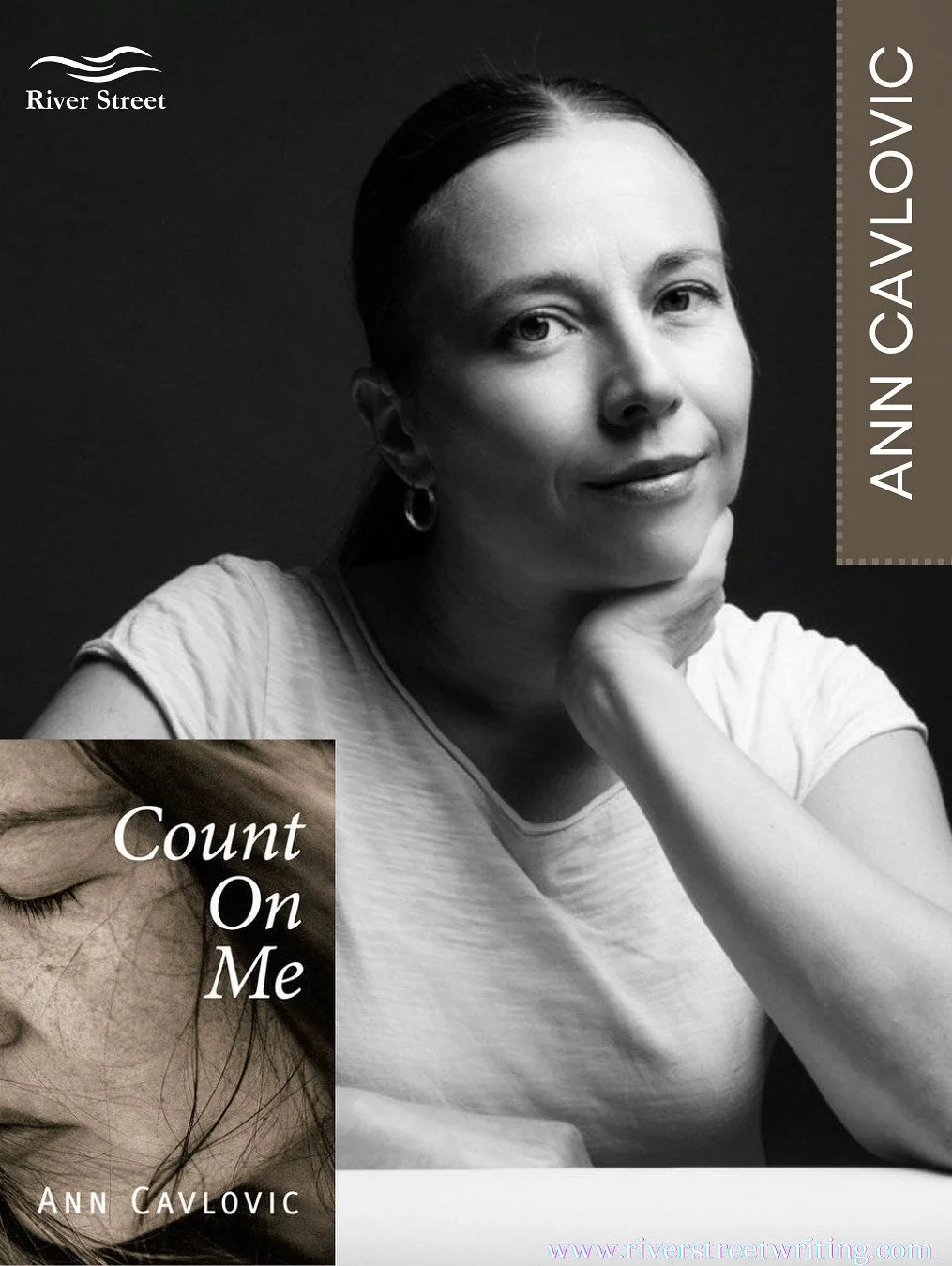Count on Me (Guernica Editions, 2025) exposes how a family can fracture when aging parents grow frail and debts from the past resurface. Filled with hope and humour amid the realities of elder abuse, this is a story about how we come to feel entitled to someone else’s money, what it takes to break cycles across generations, and how human relationships can rise above the transactional.
How I researched the hidden realities of elder abuse
By Ann Cavlovic
Research for my novel began in the hallways of my parents’ nursing home, where I watched too many intense family dramas explode right in front of me. How did family relationships turn so ugly? Did those siblings get along when they were younger? How common is elder abuse?
From there, my own experiences navigating the system of long-term care – which nothing in our culture prepares you for, by the way – blended with research to shape the story.
I first started in the typical places: journal articles, newspapers, elder care networks, StatsCan, and basic online searches. But desk research only gets you so far, and the internet is a rabbit hole. I prefer talking to humans. So, when I came across something interesting, I’d try to reach out to an expert. For example, early on I read an article in the Walrus about how hospital-induced delirium can be mistaken for dementia, leading to all kinds of trouble. But the expert quoted in the article subsequently wrote a letter to the editor criticizing how the journalist had handled the issue. I reached out to the expert with assurances that I wasn’t aiming to throw physicians under the bus, and despite his busy schedule, he agreed to be interviewed. Not only did this help me understand the nuances and ensure that an important turning point in the novel was medically plausible, it also gave me fresh ideas to add to the story.
Informed conversations beat algorithms, of this I’m sure.
I went on to interview nurses, lawyers, family physicians, bankers, funeral home directors, and social workers. I also had informal chats with people willing to fact-check things like the setting, cultural references, workplace details, single-parenting, and more. Several people I interviewed went on to generously respond to non-infrequent barrages of weird questions via text (Dr. Anne Nancekievill was a superhero.) You’ll see many of their names in the acknowledgements, although some preferred to remain anonymous.
It's important to emphasize that with every person I contacted, I presented myself as a writer with previous publications but no guarantee that my novel would ever go anywhere. Even still, my success rate at landing interviews or discussions was at least 85%. I remain (pleasantly) floored by how many people are willing to offer their time to help a writer, even a relatively untested one, if you just ask nicely.
I also talked to everyone I could who had an ageing family member in their care, along with many seniors living in care homes. What struck me was how many people wrestle with some aspect of elder care yet feel like their situation is unusual. I think I know why. Our culture absolutely sucks at talking about this phase of life. When I researched other novels dealing with elder abuse – let alone just the realities of aging – I was shocked at how few exist. And none of them dealt with abuse perpetrated by a family member. Instead, the “villain” was the butler (yes, literally, the butler did it), or the housekeeper, nurse, or “gold digger” girlfriend – all cliches. Movies were even worse; the Netflix film I Care a Lot featured a court-appointed guardian as the villain, mixing in mafia bribery, a few kidnappings, burning houses – all to make it, you know, relatable.
My research also helped me better interpret stories in the media about elder abuse, which often depict rather sensational stories of a nurse-turned-evil (Elizabeth Wettlaufer is a prime example). But “bad apples” are rare, and this unfairly casts a shadow on the legions of nurses – often racialized Canadians – who are doing incredibly demanding and important work with a level of care I know I couldn’t handle. The nurses at my parents’ nursing home were heroes (while their top bosses were a different story, mind you). There’s no way I’d perpetuate stereotypes about them in my writing.
The good news is that all this research has convinced me there are some very basic things that elders and families can do to prevent things going sour. We often want to avoid this stuff though. And I get it, it’s not fun. One senior said if her children fought after she died she’d haunt them from the grave. May I instead recommend more practical strategies: consulting with your lawyer, getting paperwork in order and clearly communicated, taking the time to understand care options before it’s an emergency, and/or having a difficult but necessary conversation with adult children before it’s too late. My website includes some links to resources.
If you’re not geeked-out yet, buckle up, there’s more!
Another massive area of research was around the Canada Revenue Agency audits of environmental charities that took place circa 2015, which factors into the novel’s sub-plot. I sifted through roughly 4,000 pages of pre-existing Access to Information requests (known as ATIPs), delivered on two CDs; I had to find an old computer to read them. My Friday evening routine for several weeks became: a) get a glass of wine, b) listen to Begonia on repeat, and c) sift through the documents. This was a needle-in-a-haystack exercise, but I found some really great needles. This may have only boiled down to a dozen paragraphs in Count on Me, but important ones. It also helped me form some minor characters – that woman in the meeting minutes who was shot down when you actually had a great point… I see you! Someone else I spontaneously interviewed outside a CRA office (when trying to understand what the furniture looked like) spawned another minor character.
I also was able to interview several of Canada’s top environmental leaders about those audits – which seemed to only target groups opposed to new oil and gas pipelines. This was one of the highest privileges of my research process.
I highly encourage writers to reach out for interviews. Imposter syndrome is not your friend. Not only did I get juicier, more nuanced information than I might have from printed sources (as wonderful as they are), the conversations in and of themselves enriched my life.
About Ann Cavlovic:
Ann Cavlovic’s fiction and creative non-fiction have appeared in Canadian literary magazines and news media such as Event, The Fiddlehead, Grain, PRISM international, The Globe & Mail, and CBC. She lives in Western Quebec. www.anncavlovic.com


